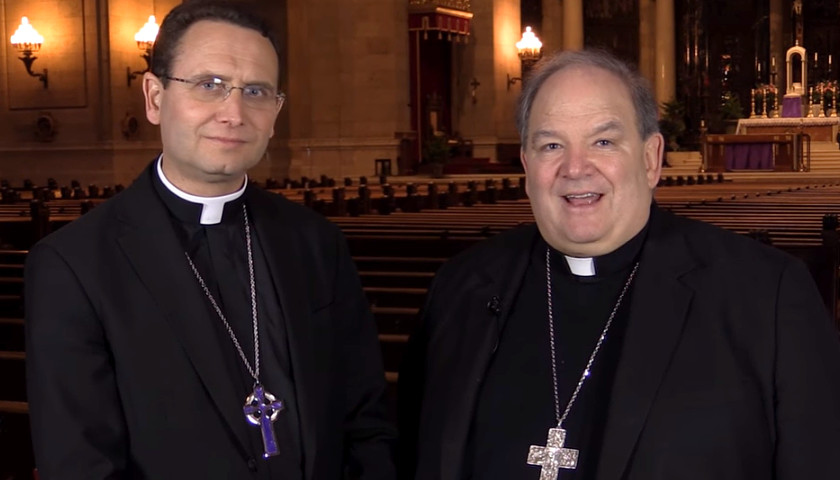Leaders of the Archdiocese of St. Paul and Minneapolis are doubling-down on their support of a bill that would provide driver’s licenses to people in the country illegally.
Under House File 1500, a person would not be “required to demonstrate United States citizenship or lawful presence in the United States in order to obtain a noncompliant driver’s license or identification card.”
As The Minnesota Sun previously reported, Archbishop Bernard Hebda spoke at a February press conference in favor of the bill alongside several Democratic politicians.
“This legislation is an important human rights test. Will we as Minnesotans embrace our brothers and sisters and help them in a way that costs us nothing as a community? Or will we be overcome by what Pope Francis calls a ‘culture of indifference’ that fails in the duty to see the needs of others effectively?” Hebda said at the time.
Hebda was recently joined in supporting the bill by Bishop Andrew Cozzens and Minnesota Catholic Conference Executive Director Jason Adkins, both of whom spoke with The Catholic Spirit about the proposal.
“We believe it is very clear where Catholic principles take you in this decision,” Cozzens told The Spirit. “It is an intrinsic, moral obligation to provide safety and refuge and a stable way of life for people who don’t have those, if you can.”
Cozzens went on to say that “the right to life is the highest of all goods, and the Church will speak most strongly around the right to life.”
“But many times immigration is also a life issue, particularly where people are fleeing for their lives, especially when their home country is so dangerous. We must speak strongly about that, because it is a life issue,” he added.
Many Democratic supporters of House File 1500 are adamantly opposed to the several pro-life pieces of legislation that have been introduced this session, such as Sen. Michelle Benson’s (R-Ham Lake) “Pain Capable Unborn Child Protection Act.”
That bill would outlaw abortions in the state after 20 weeks of pregnancy, which is when “substantial medical evidence” suggests that “an unborn child is capable of experiencing pain.”
Another bill, Senate File 869, would prohibit abortions after a fetal heartbeat is detectable in a pregnant woman’s unborn child—commonly called a “heartbeat bill.”
“We see that it’s so closely related to the question of dignity of human life and the importance of the family,” Hebda told The Spirit. “We realize all those issues are related one to the other. Part of our strong defense of life and in protesting and fighting abortion has to be that same sense of the dignity of human life that would lead us to advocate for those undocumented neighbors of ours who are already here.”
Adkins encouraged Catholics in Minnesota to “not simply set aside the prudential judgments of bishops.”
“Those policy judgments should be given appropriate consideration and deference,” he added.
The bill currently has 34 co-sponsors in the House and most recently received a hearing in the House Subcommittee on Elections.
– – –
Anthony Gockowski is managing editor of Battleground State News, The Ohio Star, and The Minnesota Sun. Follow Anthony on Twitter. Email tips to [email protected].
Image “Bishops Cozzens and Hebda” by the Archdiocese of St Paul and Minneapolis.




